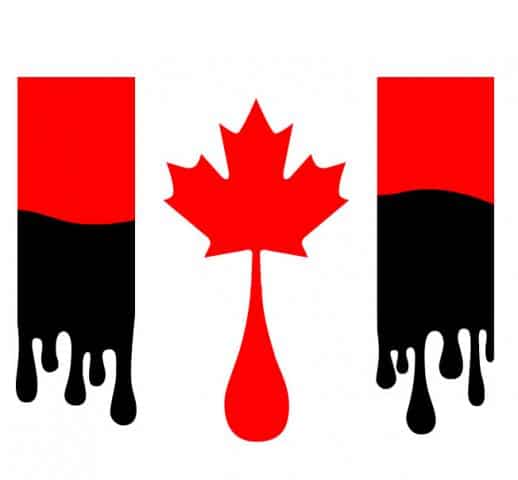Canada is using Alberta’s dirty tar sands as an excuse to bully the European Union (EU) into watering down its climate change policies, leaving the Canada-EU Comprehensive Economic Trade Agreement (CETA) in serious doubt.
This brewing transatlantic dispute over the tar sands stems from the likelihood that the EU could officially block the sale of Alberta oil in Europe given its high carbon content.
The European Commission is reportedly “readying its defenses for a legal fight with Canada.”
According to Reuters:
Last year, the EU appeared to be backing down on tar sands, but sources say negotiators for the 27-member bloc are becoming bolder as their scientific evidence becomes more robust.
“We are saying ‘be careful’, because Canada will not hesitate to take us to the WTO, so we have to have something rock-solid,” said an EU official.
Briefing notes prepared for EU Climate Change Commissioner Connie Hedegaard discussing European climate change goals and the CETA attest to Canada’s firm opposition to any European tar sands definition which negatively characterizes Alberta’s so-called ‘ethical oil’:
“Canada has been lobbying the Commission and member states intensively to avoid a separate default value for fuel derived from tar sands.”
Although Europe receives very little of Alberta’s dirty oil at present, Greenpeace reports that exports are on the rise [pdf] (and particularly via US ports which may soon receive much more dirty oil from the Keystone XL project).
What worries European leaders is the mounting body of evidence which shows that tar sands oil has a carbon footprint somewhere between 23% [pdf] and 82% [pdf] higher than regular dirty European and US oil.
A deepening reliance on dirty energy sources also contradicts progressive EU policies, mainly: efforts to reduce carbon emissions by 20-30% below 1990 levels by 2020; and a new Fuel Quality Directive [pdf] which is being updated to require a reduction in the carbon content of transport fuels by 6% below 2010 levels by 2020. Additionally, recently released European Commission data shows that aggressive climate change objectives are achievable, ‘cost effective’ and will promote economic growth across Europe.
EU leaders like Climate Commissioner Connie Hedegaard and Britain’s Climate Change Secretary Chris Huhne are speaking out for immediate and significant action to reduce global warming pollution.
There are many groups that oppose the CETA, and probably even more groups that oppose the tar sands. The fact that Canadian negotiators are prepared to cancel negotiations over the Alberta tar sands shows that dirty energy lobbying efforts are not effective and that strong climate change policies are winning out in Europe. With mounting evidence showing that the tar sands are not an ethical project and that drilling for this oil is extremely destructive to the environment and climate, European leaders should both feel emboldened to stand up to fossil fuel lobby threats and to increase their commitments towards stronger carbon reduction goals.
Subscribe to our newsletter
Stay up to date with DeSmog news and alerts






